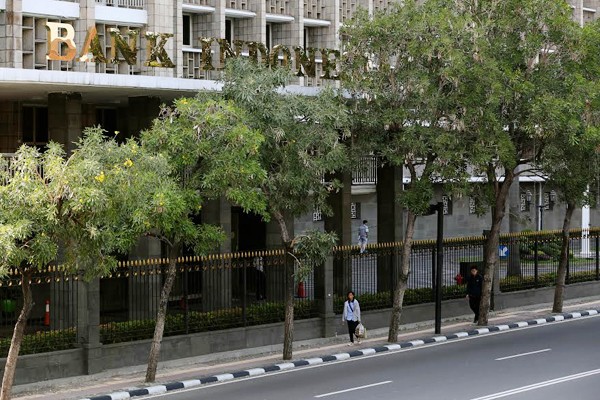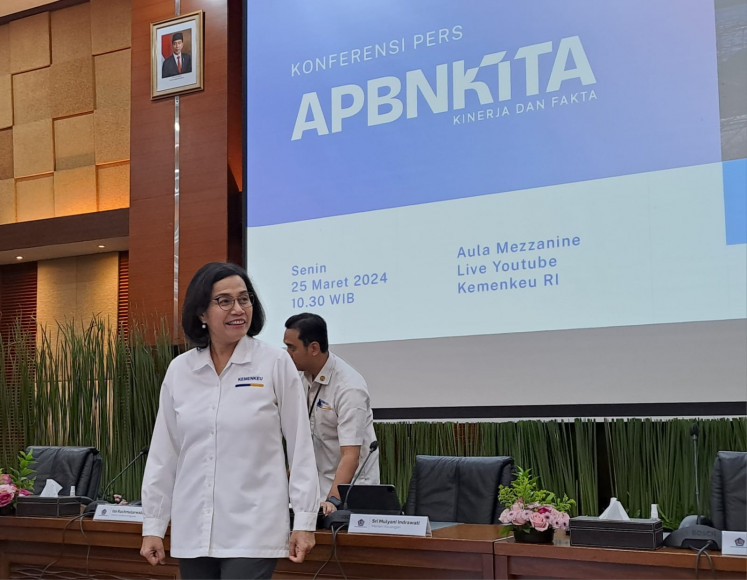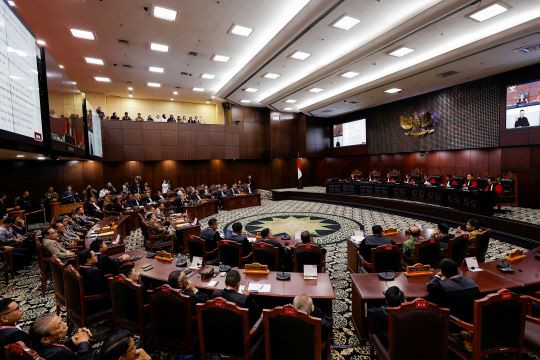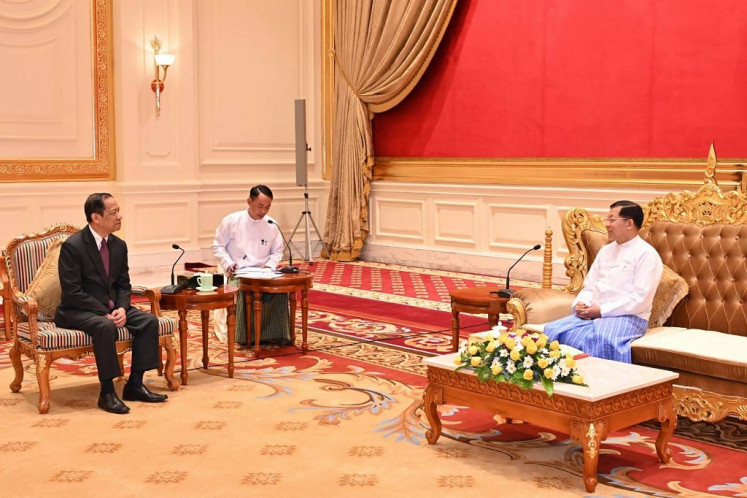BI to ditch benchmark rate, plans new one
Change Size
 A pedestrian passes the Bank Indonesia building in Central Jakarta. The central bank is slated to abandon its benchmark interest rate (thejakartapost.com/Wienda Parwitasari)
A pedestrian passes the Bank Indonesia building in Central Jakarta. The central bank is slated to abandon its benchmark interest rate (thejakartapost.com/Wienda Parwitasari)
C
onsumers and companies will be on a spending binge soon as the central bank has plans for a policy that will see borrowing costs decrease to an all-time low, a move with a far reaching impact to all quarters of the economy.
Bank Indonesia (BI) is slated to abandon its benchmark interest rate, put in place in 2005 and set on monthly basis with an emphasis on a inflation expectations rather than on money market mechanisms.
BI will instead see its monetary policy rely on a seven-day reverse repurchase (repo) rate for the new benchmark to influence borrowing costs.
As the repo is tied well to the money market, it accurately reflects supply and demand when compared to those of the BI rate, which has very limited impact on the market.
The seven-day repo has a rate of 5.5 percent with immediate potential to decline to 4.8 percent, according to analysts.
That is lower than the current BI rate of 6.75 percent, which BI will need around five months to scale down to match the current repo rate.
The new benchmark is set to take affect in August or September.
Such a benchmark matters to the economy as it sets the floor for banks to decide interest rates for borrowing and depositing.
It will also play a role in the cost of doing business in Indonesia; the lower the rate, the more competitive the economy.
In comparison, benchmark interest rates in Thailand, China, India and the Philippines stand at 1.50 percent, 4.35 percent, 6.5 percent and between 4 and 6 percent, respectively.
While BI officials refuse to comment on the planned policy, set to be announced on Friday, Vice President Jusuf Kalla spokesman Husain Abdullah told The Jakarta Post that the government was aware of the plan.
“Although we have no authority over BI and its monetary policy, which by law is independent from the government, the plan has been intensively discussed with us, often at the residence of the Vice President,” said Husain on Tuesday.
“It’s about time BI takes aggressive measures to drastically lower interest rates. The government hopes for single-digit loan rates by year-end.”
According to recent data compiled by major banks, the corporate segment is offered an annual interest rate of 11.1 percent, while retail, mortgage and non-mortgage consumer loans are offered at 12 percent, 11 percent and 12.2 percent, respectively.
Amid the global economic slowdown, Vice President Jusuf Kalla has been leading the campaign to encourage BI to lower its benchmark rate to spur the sluggish economy by encouraging the public to consume more.
The country hinges heavily on the consumption of its 250 million people to drive its economy. Lower interest rates will encourage people to borrow and consume more, and push companies or individuals to invest in productive assets.
BI’s planned policy bodes well with the market as analysts cite the current BI rate as irrelevant to actual conditions in the financial market.
Macquarie Bank fixed income and currencies strategy head Nizam Idris said that because the BI rate was not relevant to the market, it encouraged big local banks to hoard liquidity at the expense of smaller ones that competed harder for the funds.
That has created imbalances in the market and thwarted effective monetary policy transmission.
“A deeper money market and a market-based benchmark interest rate would likely encourage a better transmission of the policy rate to actual cost of funds in the economy,” he said.
Under the repo benchmark, which is already part of BI’s monetary instrument, the central bank sells government debt papers to the market with a deal to buy them back in seven days with a 5.5 percent rate.









